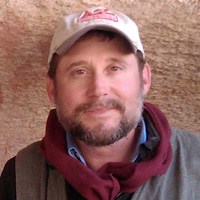In the 1960s, anthropologists Lowell Bean gave himself a challenge. Anthropologists were asking how religions helped people survive and regulate food. Many religions have taboos restricting what people can eat. Anthropologists saw this as inefficient: food taboos keep you from getting needed calories. Bean put that theory to the test.
Over several years, he worked with the Cahuilla, a native group living in the Mojave Desert. The Cahuilla have strong cultural traditions, including language, religious ceremonies and a deep understanding of their ancestral lands.
Bean found that Cahuilla ceremonies regulated trade and how surplus was shared. Every aspect of life had a religious component defining the individual's role in the community. Bean concluded that religion not only helped distribute food, it maintained peace amongst people living in one of the most difficult environments in the world.
His research has important implications for us now. He showed that, when religion, trade and resources are intertwined. If you mess with one, the others are in danger. I recently spoke with some Marshall Islanders. Their country is disappearing, inundated as a result of sea level rise. Their frustration was palpable. Their ancestral traditions tied to their homes will be lost. The people can move, but the islands that their culture is tied to cannot. They will survive, but their current way of life will be destroyed.
Those of us studying climate change have been mystified by people who don't believe it exists, despite global scientific consensus. I don't mean industries trying to discredit the research. I mean the people on the street who don't believe the science. This denial, I think, stems from the big changes we need to make. These changes will require many people to lose their jobs, to move their families. For many, human-caused climate change is inconsistent with religious beliefs, and asking them to accept something contrary to their world view and to abandon their way of life will be met with fierce resistance.
